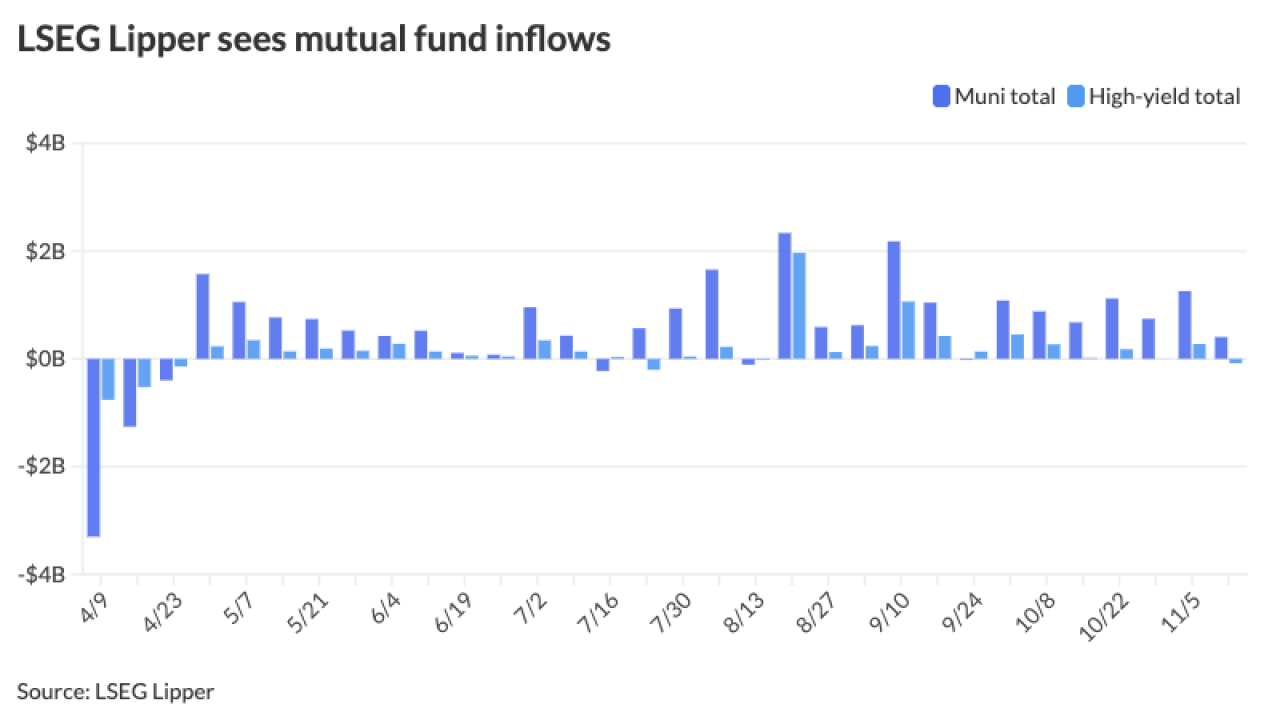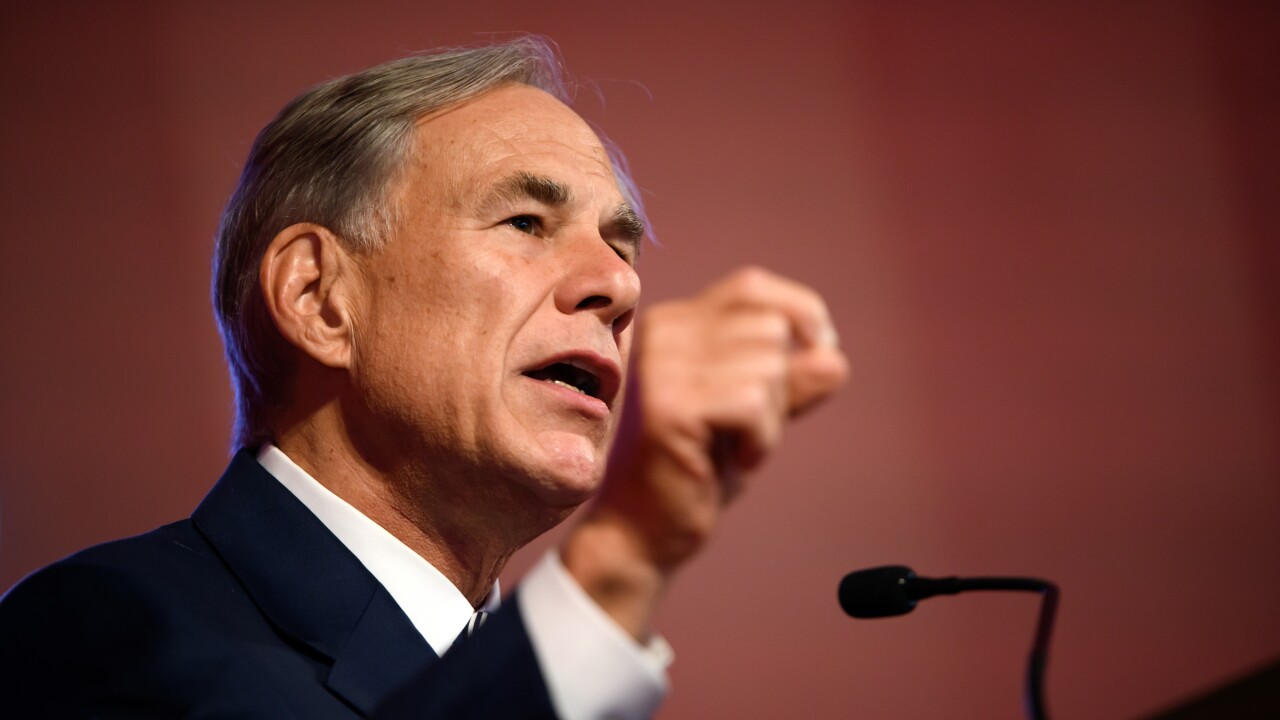
CHICAGO – The Illinois State Toll Highway Authority heads back into the market Wednesday with a $400 million deal, stressing its double-A ratings and fiscal strength.
The authority's issue comes against a backdrop of two recent downgrades to Illinois state general obligation bonds that put the state at the BBB-plus level.
The toll highway authority operates under its own independent state statutes with its revenues and operations segregated from the state's, although its leaders are appointed by the governor.
Proceeds of the fixed-rate senior lien deal will finance ongoing projects in system's 15-year, $12 billion Move Illinois program. The deal offers serial maturities between 2027 and 2040. A portion will also go to make a deposit in the debt service reserve.
Repayment is pushed off to the later years to fit into the existing schedule with most principal being amortized between 2036 and 2040.
"The tollway has a history of strong financial performance, a strong and diverse economic base and an experienced and proactive board and management team and has had robust traffic performance…and limited viable competing roads," the authority's chief of finance, Mike Colsch, said in an investor presentation. Colsch also highlighted the agency's strong liquidity with unrestricted funds of $898 million.
Ahead of the sale, three rating agencies affirmed the authority's AA-minus-level ratings on $5.8 billion of debt secured by toll revenues.
"The ratings reflect our view of the system's essentiality and strong financial profile," wrote Standard & poor's analyst Joseph Pezzimenti, "reflecting our expectation that the ISTHA will continue to manage its operations and capital program effectively, while maintaining debt service coverage levels near two times."
All three rating agencies assign a stable outlook.
Ramirez & Co. Inc. is senior manager. Barclays, Goldman Sachs, and JPMorgan are co-seniors and five other firms round out the syndicate. The authority's underwriting pool was set to expire this year but the agency is opting to exercise its option to extend the current pool for a year.
Public Financial Management Inc. and Columbia Capital Municipal Advisors are advising the authority and Chapman and Cutler LLP is bond counsel.
Since it began borrowing to fund the program launched in 2011, the authority has returned to the ranks of steady issuers and, according to its proposed 2016 budget, that trend will continue.
The authority's construction program marks a bright spot for state infrastructure and offers a sharp contrast to some state projects that have been stalled over the state's budget impasse. Also, little headway has been made on a new state capital program to replace the existing one that has run its course, with the focus centered on resolving gridlock between Republican Gov. Bruce Rauner and the legislature's Democratic majorities, which has left the state without a budget for four and a half months.
Hearings are underway on the authority's proposed budget, which would allocate $322 million for operations and $1.4 billion for capital projects with plans to borrow $600 million.
The overall program relies on a total of $5 billion of borrowing with another $2.5 billion still to come after this week's sale.
"The 2016 tentative budget puts more than 75% of the revenues we collect right back into the roads, bridges and infrastructure throughout the 12 counties the Illinois Tollway serves, supporting opportunities for jobs and economic development, as well as providing for safe and efficient travel for our customers," the authority's executive director, Greg Bedalov, said in a statement.
The 2016 capital plan funds the completion of the rebuilding and widening of the Jane Addams Memorial Tollway and continues construction of a new, all-electronic Elgin O'Hare Western Access Project.
It completes resurfacing on the Reagan Memorial Tollway and begins design work for reconstruction of the Central Tri-State Tollway.
The 286-mile system serves the state's northeastern region. The capital program seeks to reduce congestion and pollution, expand the more than 50-year-old system, improve roads, and create jobs and economic development.
To support the program, the board adopted a one-time 87% increase in passenger tolls and a 60% increase in commercial vehicle tolls that will be phased in and then adjusted annually based on inflation starting in 2018.
The authority projects its revenues will increase to $1.3 billion in 2016 from $1.22 billion budgeted in 2015 due mostly to increased traffic and rising toll rates. Operating costs are up 3.6% due mostly to rising health and retirement costs and equipment and fees to accommodate revenue collection.
The governor holds sway over leadership appointments at the authority, but the budget impasse in Springfield has had little impact on the agency due to the segregation of its operations and revenue flow.
"The outlook is also based on the assumption that the authority will maintain its independence from the state despite the state's current fiscal pressures and that approved commercial toll increases will be implemented as planned," Moody's wrote.
Moody's said its rating is supported by toll increases, steady traffic growth, a demonstrated track record of delivering large, complex capital programs within budget, rapid debt amortization, and debt service coverage forecasted at over two times.
Rating agencies have described the authority's significant addition of debt to support both the capital program and additional debt-service reserve funding as a challenge, along with its ability to manage a big capital program and high floating-rate debt and swap exposure.
Strong liquidity helps mitigate above average exposure to variable-rate debt and derivatives.
The agency has shed its penchant for synthetically fixed issuance under its previous capital program, chipping away at the percentage of its debt portfolio in a floating rate. It will fall to about 22% after this week's sale and should continue to drop because all new borrowing under the $12 billion program will be sold with a fixed rate.
The authority has nine liquidity or credit providers on its floating-rate bond portfolio with expirations in 2016 and 2017. The $1.3 billion of paper is swapped to a synthetic fixed rate under nine agreements with seven banks negatively valued at $290 million, according to the investor presentation.
Rising pension costs are a concern because the authority participates in the Illinois State Employees Retirement System, one of the state's five poorly funded pension accounts.
"Rising pension costs could become a larger percentage of the operating expenses which could exert negative pressure on future net revenues available for debt service," Moody's said.
Fitch expects total leverage to remain moderate and relatively stable and it looks favorably on a history of delivering capital programs on time and under budget.
Toll transactions have grown in nearly every year since 1974 and the five-year compound annual growth rate of 1.6% reflects recessionary effects, operational interruptions from the previous congestion relief capital program, and toll increases, Fitch said.
Even with little direct link to the troubled state government, the tollway authority pays some interest rate penalty because of the Illinois name, as do most Illinois-based issuers.
The authority last deal sold debt in July. A 2040 term bond was priced as 5s to yield 3.85%. That was 69 basis points over the Municipal Market Data's top-rated benchmark that day and 45 basis points over the double-A benchmark. The spread was on par with a 2014 deal in which the authority paid a yield of 3.53%, 64 basis points over MMD triple-A yield that day.
In a statement after the July pricing, the agency said its borrowing costs remain below projections used to craft the plan.
The paper offers a good opportunity for investors looking for stronger rated, revenue-backed paper out of Illinois, one market participant said. But given the state's latest rating downgrades and the potential for further negative action, the authority could see its penalties rise "just given the way the market reacts to news," said Michael Comes, vice president of research and portfolio manager at Cumberland Advisors.
"There is a linkage" even if it's a not a direct one, he said.





